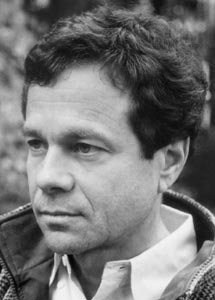The novelist and educator Alan Lightman trained as a physicist and is now adjunct professor of humanities at the Massachusetts Institute of Technology. He has written four novels: Einstein's Dreams (1993), Good Benito (1995), The Diagnosis (2000) and Reunion (2003). His latest collection of essays is A Sense of the Mysterious: Science and the Human Spirit (Pantheon 2005).

What are the three best popular-science books?
Chaos by James Gleick. A beautifully written and fascinating book that introduced the idea of chaos theory for the first time to the public. Gleick is a master storyteller and writer.
The Making of the Atomic Bomb by Richard Rhodes. A meticulously researched, powerfully written, definitive account of the most significant, and horrifying, application of science in our era. Rhodes does more deep research on his subjects than anyone.
The First Three Minutes by Steven Weinberg. An elegant account of the beginning of the universe. Weinberg has a rare combination of literary skill, wide reading and indisputable authority in physics.
What science books are you currently reading?
Einstein in Berlin by Tom Levenson.
What else are you reading?
A non-science book that I am currently reading is the biography Pol Pot by Philip Short. I am currently doing some work in Cambodia, and this book provides a good understanding of the Cambodian mind and culture.
Which popular-science book have you never read, but feel you ought to have tackled?
All the books by [the astrophysicist] Martin Rees. He’s an extraordinary scientist and a fine writer. I’ve read his essays and articles, but never his books.



